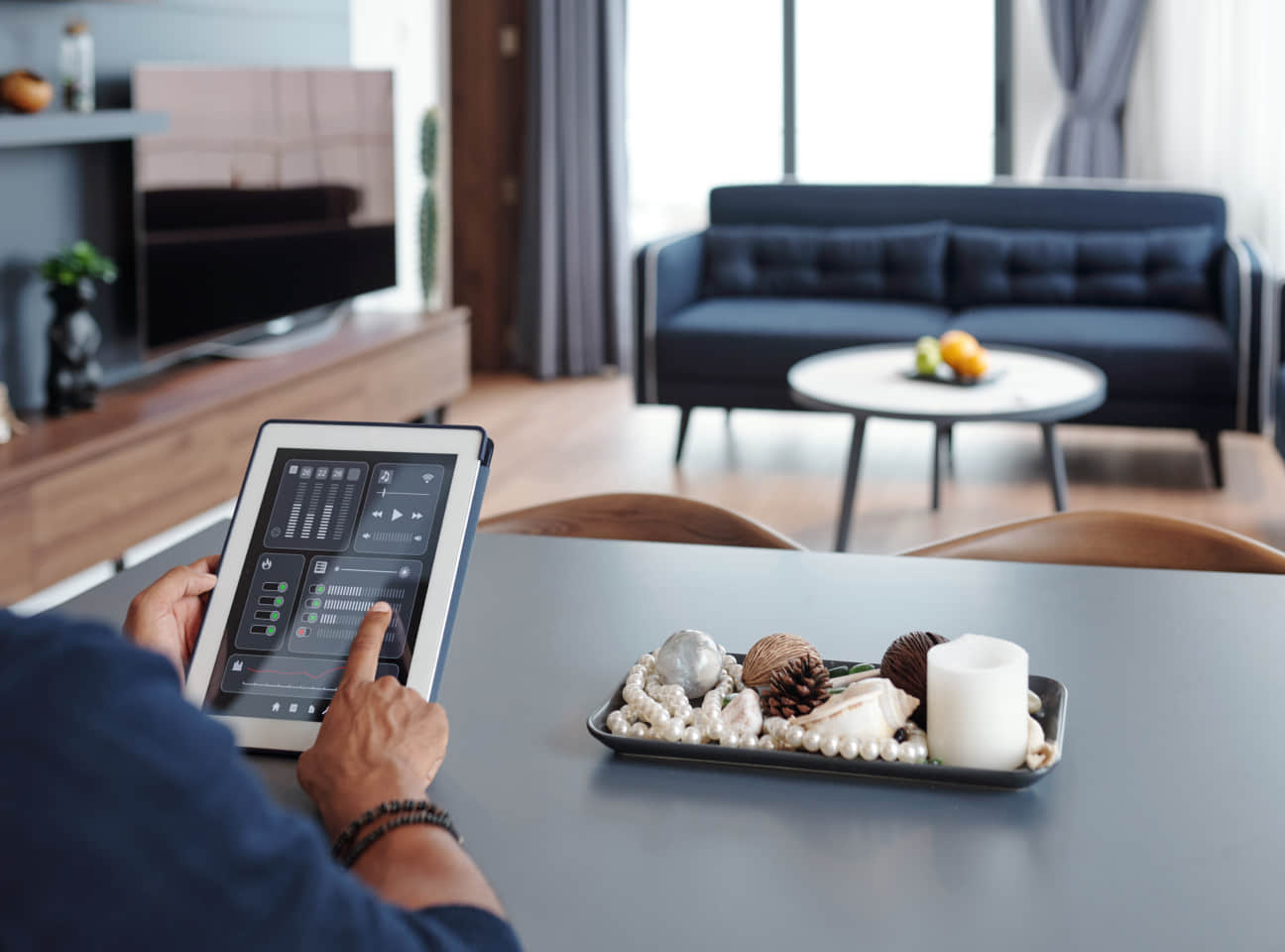
In today’s world, sustainability has become a top priority for many homeowners. With the rise of climate change and environmental issues, people are looking for ways to reduce their carbon footprint and live more eco-friendly lifestyles. One way to achieve this is by incorporating smart home solutions that not only make our lives more convenient but also help us reduce our impact on the environment. From energy-efficient appliances to automated systems, there are countless options available to create a sustainable future for our homes.
One of the most popular eco-friendly smart home solutions (also known as حلول المنزل الذكي in the Arabic language) is the installation of solar panels. By harnessing the power of the sun, homeowners can generate their own clean energy and reduce their reliance on fossil fuels. Solar panels can be installed on the roof of a house and connected to the electrical system to provide renewable energy for powering appliances, lighting, and other electronic devices. Not only does this help reduce electricity bills, but it also significantly decreases carbon emissions, making it a win-win for both homeowners and the environment.
Another eco-friendly option for smart homes is the use of energy-efficient appliances. From refrigerators to washing machines, there are now numerous appliances on the market that are designed to consume less energy and water without compromising on performance. By switching to these energy-efficient models, homeowners can reduce their electricity and water consumption, leading to lower utility bills and a smaller environmental footprint. Some smart appliances even come with features that allow users to monitor and control their energy usage remotely, further enhancing their eco-friendly benefits.
In addition to solar panels and energy-efficient appliances, smart home automation systems offer another sustainable solution for homeowners. These systems allow users to control various aspects of their home, such as lighting, heating, and air conditioning, through their smartphones or voice commands. By optimizing the use of these systems, homeowners can ensure that energy is only used when needed, leading to lower energy consumption and reduced waste. For example, smart thermostats can learn the household’s schedule and adjust the temperature accordingly, while smart lighting systems can automatically turn off lights in empty rooms to save electricity.
Furthermore, water conservation is another important aspect of creating a sustainable home. Smart home solutions can help homeowners reduce their water usage by incorporating features such as leak detection systems, smart irrigation controllers, and low-flow fixtures. Leak detection systems can alert homeowners to potential water leaks in real-time, allowing them to address the issue promptly and prevent water waste. Smart irrigation controllers use weather data to adjust watering schedules, ensuring that plants receive the right amount of water without overusing it. Similarly, low-flow fixtures for faucets, showers, and toilets help reduce water consumption without sacrificing water pressure, making them a cost-effective and eco-friendly choice for any home.
When it comes to sustainable living, waste management is also a crucial consideration. Smart home solutions can help homeowners reduce waste by implementing recycling programs, smart bins, and composting systems. Recycling programs encourage homeowners to separate recyclable materials from general waste, making it easier to recycle and reduce landfill waste. Smart bins equipped with sensors can notify homeowners when they are full, helping them to manage waste more efficiently. Composting systems allow homeowners to turn food scraps and organic waste into nutrient-rich soil for their gardens, reducing the amount of waste that ends up in landfills and promoting a more sustainable lifestyle.
Overall, smart home solutions offer a plethora of eco-friendly options for homeowners looking to create a sustainable future for their homes. From solar panels and energy-efficient appliances to smart home automation systems and water conservation features, there are plenty of ways to reduce our environmental impact while enjoying the benefits of modern technology. By making conscious choices and investing in sustainable solutions, homeowners can contribute to a greener planet and pave the way for a more sustainable future for generations to come.